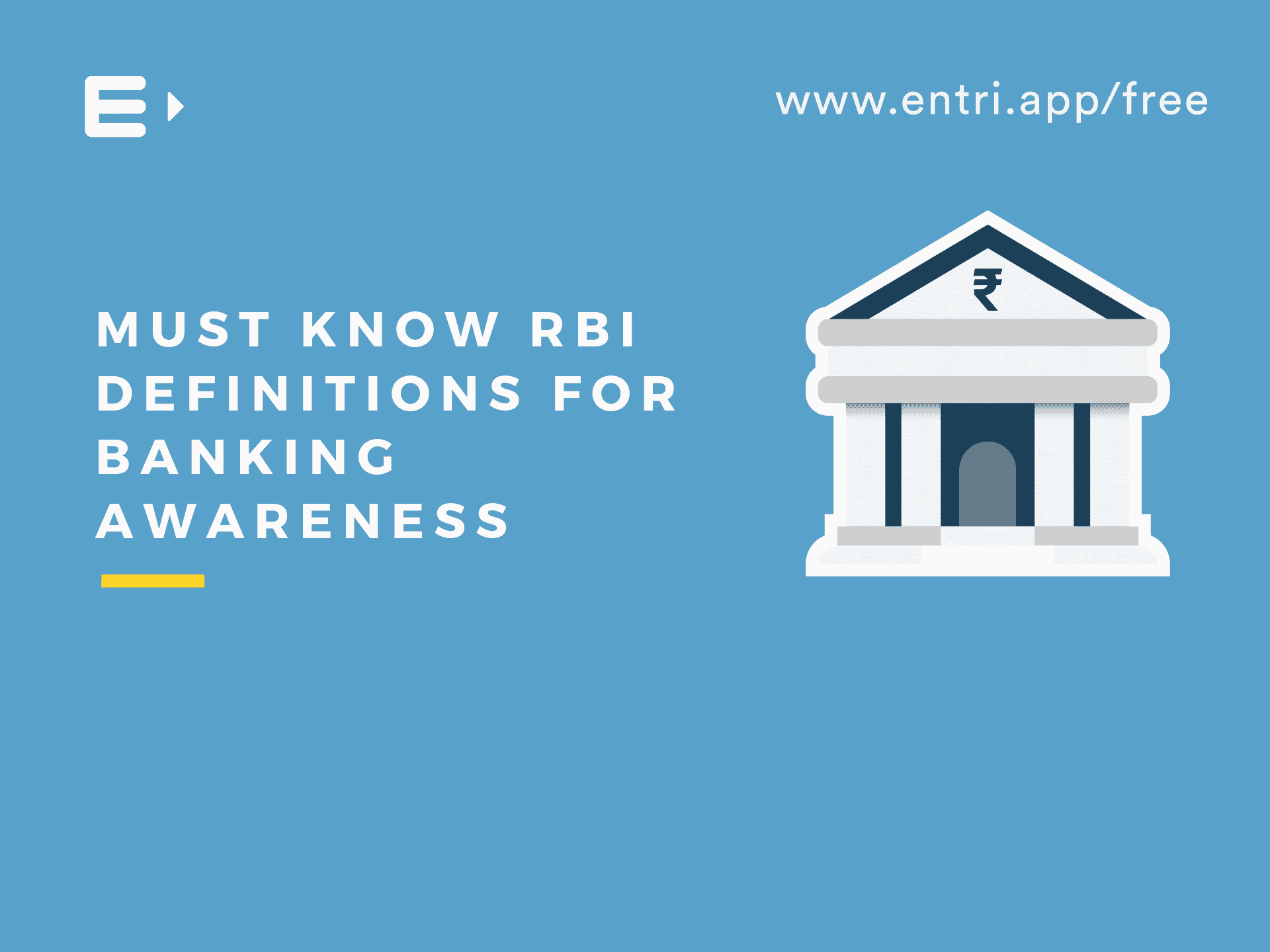When it comes to public sector banking, the Reserve Bank of India (RBI) holds unparalleled importance. Any banking examination aspirant must know about the RBI thoroughly; the RBI constitutes an integral part of the Indian banking economy. So, whether you are studying for IBPS PO 2019 or IBPS Clerk 2019 or any exam, you must know about RBI and that includes their published terms – RBI Definitions.
RBI Definitions are certain terms defined by the central bank. The RBI periodically publishes reports that coins new terms in the context of banking and economy. In your banking exams, those terms and definitions could fetch you easy marks. Hence, it’s important that you know them inside out. Here are 5 important RBI definitions that you cannot afford to miss!
Credit Risk
Credit risk is the possibility that one (or more) parties will default on the payment of their financial obligations. Credit risk is associated with every financial transaction that happens on a credit basis. Banks focus on the credit risk element when they receive loan applications from individuals and companies. Certain methods like Foundation Internal Rating Based (FIRB) approach and the Advanced Internal Rating Based (AIRB) approaches are applied by banks to compute the probability of default (PD) by a debtor.
Internal Capital Adequacy Assessment Procedure (ICAAP)
As per the BASEL-II framework passed by the Bank for International Settlements (BIS), every bank must have a certain procedure to assess their capital requirements; in simple words, there should be an official, board-approved process to help determine the amount of money a bank needs to have at any point to fulfil their day-to-day operations. The ICAAP is a document that is used to ensure that a bank has performed the required processes needed to know their capital adequacy requirements.
Derivative
In simple terms, a derivative is a product that ‘derives’ or receives its value from another product. In the context of finance and banking, derivative includes forward contracts, options, and swaps. In the National Stock Exchange (NSE) as well as the Bombay Stock Exchange (BSE), derivatives include Stock Futures and Stock Options (CE and PE).
Non Performing Assets (NPA)
Non-Performing Assets are those assets (essentially cash or capital) that are lent or leased out by a financial institution (mostly a bank) that fails to generate cashflow for it. In the Indian banking context, non-performing assets refer to the money that has been lent out by the bank on which the debtor has defaulted or failed to pay for.
Restructured Account
Restructured accounts are those wherein a bank or financial institution offers special concessions to a borrower that they would have not otherwise considered. For example, certain terms of loan repayment can be altered by the bank including the interest rate or amount to be collected or the number of installments to be paid or the installment amount or the time provided to the borrower/debtor. Restructuring is done by banks to help borrowers get back to their financial health provided that they have been trustworthy debtors in the past and have an excellent credit score.
There you go. If you can study and memorize those RBI definitions in this article, your chances of acing the banking awareness part of your bank examinations shall increase significantly.
For a better shot at cracking your banking and government examinations, check out the Entri app!











